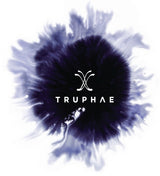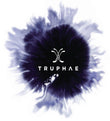Have you ever wondered if you can get ink poisoning from a pen? Or if it’s safe to draw on your skin and create an intricate Sharpie tattoo? These questions have often crossed the minds of writing enthusiasts who frequently engage in various writing activities, such as journaling, taking notes, doodling, or drawing as part of their daily routine.
The short answer is – when using the pen topically or ingesting a minimal amount of ink, the risk of getting ink poisoning is extremely low, and after reading this article, you’ll figure out exactly why. However, this article is for informational purposes only and we’d like to urge you to consult a specialist in case you are exhibiting a reaction after coming in contact with pen ink.
Our aim is to dispel misconceptions and provide factual information on the topic of ink and the potential health risks associated with it. Throughout this article, we’ll examine the available evidence and give you our final verdict on this topic.
Can Swallowing Pen Ink Lead To Poisoning?
According to an article in the Journal of Toxicology, “All substances are capable of producing toxicity, so nothing is completely non-toxic. Minimally toxic substances are those which produce little toxicity, minor self-limited toxicity, or clinically insignificant effects at most doses.”
Pen ink is considered a substance that’s minimally toxic. When ingesting these types of substances, the potential effects are benign, however, this can depend on each individual’s circumstances, such as pre-existing medical conditions, pregnancy, etc. All in all, if you swallow a small amount of ink, you’re unlikely to experience any serious side effects.
Can Drawing On Your Skin With a Pen Cause Ink Poisoning?
Ink samples offer pen enthusiasts the chance to try out different inks and choose their favorites. However, if you accidentally jab yourself with your pen, or if your child ends up with ink drawings on their hand, is there a reason for concern?
Fear not, because this isn’t a situation in which a lot of ink can enter your body and it isn’t a reason for concern since the combination of solvents, dyes, and pigments that are found in ink are generally not poisonous. They may stain your skin, but they will not poison you.
The only thing you need to concern yourself with is cleaning up the wound and monitoring it to see when it heals. If you don’t feel your best after the initial recovery, or the wound has a weird appearance, it’s probably a good idea to contact a medical professional.
Are Sharpie Tattoos Safe to Use?
Sharpies have gained popularity for their use as temporary tattoos due to some Sharpie fine point markers being certified as non-toxic. It’s worth mentioning that Sharpies aren’t initially intended for skin application and people with skin prone to allergies or sensitive skin may experience an allergic reaction as a result of a Sharpie tattoo.
The Sharpies that bear the A.P. seal and are certified as non-toxic even if inhaled, ingested, or absorbed through the skin, may be safe to use to draw a Sharpie tattoo. However, some markers contain chemicals such as Xylene, which can pose risks through inhalation, ingestion, and skin absorption.
Uni POSCA Markers and Temporary Tattoos as an Alternative for Skin Decoration
One of the safest methods to decorate your skin is using the UNI POSCA markers. Even though they aren’t specifically designed for use on skin, the ink is water-based and doesn’t contain any harmful chemicals. We’d advise you to test them on a small skin patch before you start doing intricate designs.
If you’d like to take additional precautions, you may want to look into temporary tattoos that are specifically designed to be applied to the skin. The method of application is straightforward and the removal is even easier. Just steer clear of black henna tattoos since they may cause an allergic reaction.
What Can Happen if You Accidentally Poke Yourself With a Pen?
As we’ve already mentioned, pen ink is typically non-toxic, so scratching or stabbing yourself with a pen isn’t something you should be worried about. Although you may experience skin reddening, you can simply clean the area and apply an antiseptic cream. Since the body quickly metabolizes and gets rid of any external substances, you’re unlikely to experience any unwanted side effects. But if you experience prolonged discomfort, it’s best to consult a doctor.
Is Pen Ink Considered Toxic for People?
Most pen ink is generally considered non-toxic, especially those we use on a daily basis. However, ingesting large amounts of ink may cause unwanted effects in your body, such as nausea. Moreover, some ink may contain trace amounts of chemicals, such as xylene (found in permanent markers), ethyl glycol, phenol, and others, which may be dangerous in large quantities.
Symptoms of Ink Poisoning
Even though the term “ink poisoning” can be misleading, ink exposure may result in a few symptoms, depending on how it’s ingested:
- Ink getting in your eyes - it may cause irritation and blurred vision, so you should rinse your eyes with cool water and consult a doctor if necessary.
- Swallowing ink - if someone swallows a substantial amount of ink, this may cause symptoms such as stomach ache or nausea.
- Staining the skin or mucous membranes - doesn’t warrant a hospital visit since you can just scrub the ink away.
What Are the Chances of Getting Ink Poisoning?
The chances of getting ink poisoning from a pen are extremely low, therefore you can use most pens and markers safely. Unless you ingest large amounts of ink, you can use all writing tools without risking ink poisoning through contact with skin or by ingesting small amounts of ink. However, in the case of an allergic reaction, always contact a medical professional and don’t just rely on the information that you get online.
FAQs
Is it safe to write on your skin with a pen?
Most of the pens that are commonly used won’t cause ink poisoning and are safe to use on your skin unless you’re allergic to some of the ink ingredients.
What pen is best for writing on the skin?
Mitsubishi Dermatograph is a pen that, according to many sources, is safe to use on the skin. It’s easily removed with soap or rubbing alcohol, and some colors are more visible than others.
What is ink made of?
Ink is a combination of various ingredients, such as solvents, dyes, pigments, and additives, which vary depending on the type of ink.
Conclusion
Feel free to use your pens without fearing that you can get ink poisoning since this isn’t likely to happen when using regular pens. While accidental ingestion or skin contact with ink may cause mild symptoms in some cases, the effects generally aren’t life-threatening. However, it’s important to exercise caution and avoid ingesting large amounts of ink, so follow the standard safety guidelines that are provided by manufacturers.
We wish you a pleasant writing experience and invite you to check out some of our ink collections, such as the variety of Venvstas ink, our huge selection of ink samples, and our affordable ink collection.









Leave a comment